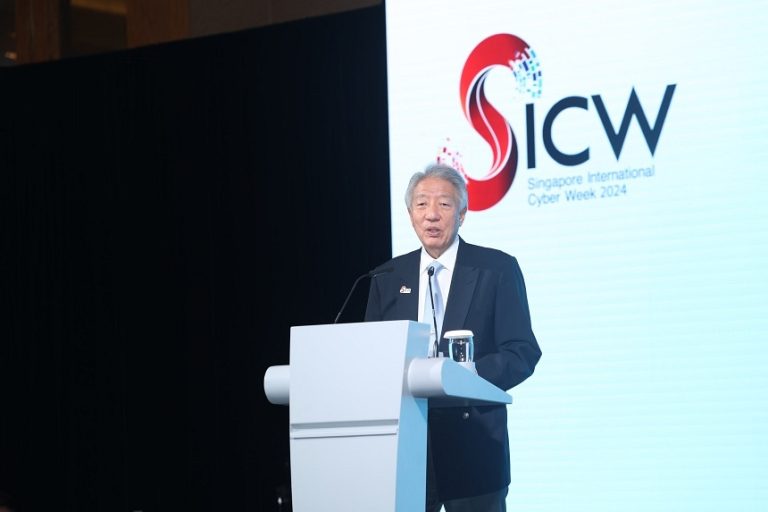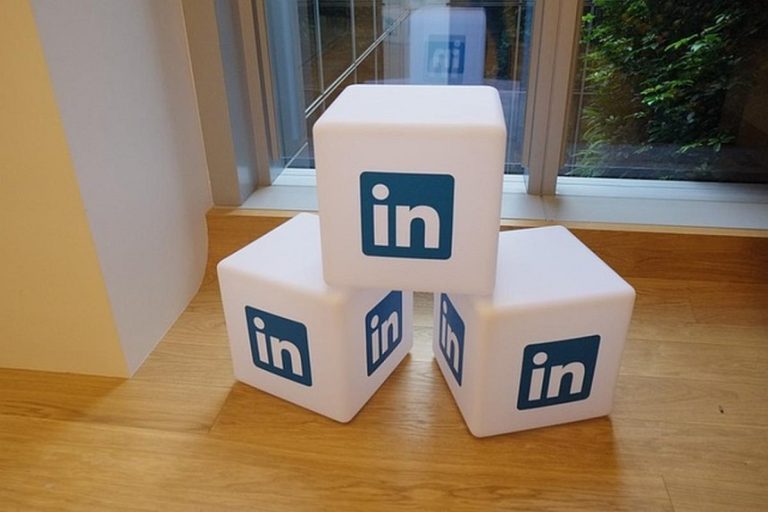
Similar Posts

“Singapore Issues New Guidelines to Protect Businesses from AI Security Risks”
SINGAPORE – Rogue chatbots that spew lies or racial slurs may be just the beginning, as maliciously coded free chatbot models blindly used by businesses could unintentionally expose sensitive data or result in a security breach.
In new guidelines published on Oct 15, Singapore’s Cyber Security Agency (CSA) pointed out these dangers amid the artificial intelligence (AI) gold rush, and urged businesses to test what they plan to install rigorously and regularly.
This is especially crucial for firms that deploy chatbots used by the public, or those linked to confidential customer data.
Frequent system tests can help weed out threats like prompt injection attacks, where text is crafted to manipulate a chatbot into revealing sensitive information from linked systems, according to the newly published Guidelines on Securing AI Systems .
The guidelines aim to help businesses identify and mitigate the risks of AI to deploy them securely. The more AI systems are linked to business operations, the more they should be secured.
Announcing the guidelines at the annual Singapore International Cyber Week (SICW) at the Sands Expo and Convention Centre on Oct 15, Senior Minister and Coordinating Minister for National Security Teo Chee Hean said the manual gives organisations an opportunity to prepare for AI-related cyber-security risks while the technology continues to develop.
Mr Teo said in his opening address that managing the risks that come with emerging technology like AI is an important step to build trust in the digital domain. He urged the audience to learn lessons from the rapid rise of the internet.
“When the internet first emerged, there was a belief that the ready access to information would lead to a flowering of ideas and the flourishing of debate. But the internet is no longer seen as an unmitigated good,” he said, adding that there is widespread recognition that it has become a source of disinformation, division and danger.
“Countries now recognise the need to go beyond protecting digital system to also protecting their own societies,” he said. “We should not repeat these mistakes with new technologies that are now emerging.”
The ninth edition of the conference is being held between Oct 14 and 17 and features keynotes and discussion panels by policymakers, tech professionals and experts.
AI owners are expected to oversee the security of AI systems from development, deployment to disposal, according to CSA’s guidelines, which do not address the misuse of AI in cyber attacks or disinformation.
In a statement released on Oct 15, CSA said: “While AI offers significant benefits for the economy and society… AI systems can be vulnerable to adversarial attacks, where malicious actors intentionally manipulate or deceive the AI system.”
Organisations using AI systems should consider more frequent risk assessments than with conventional systems to ensure tighter auditing of machine learning systems.

WASHINGTON – A sophisticated breach of US telecommunications systems has extended to the presidential campaigns, raising questions about the group behind the attack and the extent of its efforts at collecting intelligence.
It was unclear what data was taken in the attack. The far-reaching operation has been linked to the Chinese government and attributed to a group experts call Salt Typhoon.
Investigators believe hackers took aim at a host of well-connected Americans, including the presidential candidates – reflecting the scope and potential severity of the hack.
Here’s what to know.
What is Salt Typhoon?
Salt Typhoon is the name Microsoft cybersecurity experts have given to a Chinese group suspected of using sophisticated techniques to hack into major systems – most recently, US telecommunication companies.
The moniker is based on Microsoft’s practice of naming hacking groups after types of weather – “typhoon” for hackers based in China, “sandstorm” for efforts by Iran and “blizzard” for operations mounted by Russia. A second term, in this case “salt,” is used to denote the type of hacking.
Experts say Salt Typhoon seems to be focused primarily on counterintelligence targets, unlike other hacking groups that may try to steal corporate data, money or other secrets.
What do US officials think Salt Typhoon has done?
National security officials have gathered evidence indicating the hackers were able to infiltrate major telecom companies, including but not limited to Verizon.
The New York Times reported on Oct 25 that among the phones targeted were devices used by former President Donald Trump and his running mate, Senator JD Vance of Ohio. The effort is believed to be part of a wide-ranging intelligence-collection effort that also took aim at Democrats, including staff members of both Vice President Kamala Harris’ campaign and Senator Chuck Schumer of New York, the majority leader.
How serious is this hacking?
National security officials are still scrambling to understand the severity of the breach, but they are greatly concerned if, as it appears, hackers linked to Chinese intelligence were able to access US cellphone and data networks. Such information can provide a wealth of useful intelligence to a foreign adversary like China.
To some degree, the breach represents a continuation of data collection on the types of targets that spies have been gathering for decades. In this instance, however, the sheer quantity and quality of the information Salt Typhoon may have gained access to could put the intrusion into its own category, and suggests that US data networks are more vulnerable than officials realised.
What did the hackers get?
At this stage, that is still unclear. One major concern among government officials is whether the group was able to observe any court-ordered investigative work, such as Foreign Intelligence Surveillance Act collection – a highly secretive part of American efforts to root out spies and terrorists.
No one has suggested yet that the hackers were able to essentially operate inside individual targets’ phones. The more immediate concern would be if they were able to see who was in contact with candidates and elected officials, and how often they spoke and for how long. That kind of information could help any intelligence agency understand who is close to senior decision-makers in the government.
People familiar with the investigation say it is not yet known if the hackers were able to gain access to that kind of information; investigators are reasonably confident that the perpetrators were focused on specific phone numbers associated with presidential campaigns, senior government leaders, their staff members and others.
Like the weather, hacking is never really over, and the Salt Typhoon breach may not be over either. It is also possible that the United States may never learn precisely what the hackers got. NYTIMES

WASHINGTON – Chinese hackers who tapped into Verizon’s system targeted phones used by Republican presidential candidate Donald Trump and his running mate JD Vance, the New York Times reported on Oct 25, citing people familiar with the matter.
The newspaper said investigators were working to determine what communications, if any, were taken.
The Trump campaign was made aware this week that Trump and Mr Vance were among a number of people inside and outside of government whose phone numbers were targeted through the infiltration of Verizon phone systems, it added.
The campaign did not immediately respond to a request for comment.
The Trump campaign was hacked earlier this year. The US Justice Department charged three members of Iran’s Revolutionary Guards Corps with the hack and trying to disrupt the Nov 5 election. REUTERS

DUBLIN – Ireland’s data protection commission has fined LinkedIn €310 million (S$442 million) for illegally processing the personal data of users within the European Union to deliver targeted advertising.
The decision also includes an order for Microsoft Corp-owned LinkedIn to bring its data processing into compliance with the EU’s General Data Protection Regulation (GDPR), according to a statement by the Irish Data Protection Commission (IDPC) on Oct 24.
Deputy Commissioner Graham Doyle said in a statement that LinkedIn’s processing of personal data without an appropriate legal basis was a “clear and serious violation of data subjects’ fundamental right to data protection”.
It is the sixth-largest fine to be issued under GDPR since it was introduced in 2018.
The Irish regulator has issued hefty fines to several social media companies for GDPR violations in recent years.
Facebook and Instagram parent Meta Platforms Inc has faced the brunt of the penalties, including a record €1.2 billion charge in May 2023 for transferring EU users’ data to the US. The commission fined ByteDance Ltd’s TikTok €345 million in September 2023 over its handling of children’s data.
It is part of a broader crackdown on Big Tech companies by the EU over a range of issues including data privacy, competition and disinformation.
LinkedIn said the case relates to claims from 2018 about some of its digital advertising efforts in the EU.
“While we believe we have been in compliance with the General Data Protection Regulation (GDPR), we are working to ensure our ad practices meet this decision by the IDPC’s deadline,” a spokesperson said in a statement.
Ireland’s data protection commission launched an inquiry into LinkedIn’s data processing practices following a complaint made to the French data regulator. LinkedIn, like many other big tech companies, has its European headquarters in Ireland, which means that local regulators are tasked with enforcing EU rules. BLOOMBERG

SINGAPORE– The Cyber Security Agency (CSA) is starting a study aimed at raising the productivity and professionalism of cyber-security workers.
It may result in an outline of the competencies required of chief information security officers – known by the acronym Cisos – and their teams of security executives who are in high demand, given their key role amid surging cyber attacks.
Ms Veronica Tan, CSA’s director at safer cyberspace division, told The Straits Times: “For organisations, clarity in standards and desired skills at various roles will mean greater improvements in workforce competency and productivity.”
The study will involve industry players, training institutions and certification bodies, she added.
CSA’s plan comes as companies warm to the idea of designated cyber-security personnel, but sometimes find themselves hindered by limited budgets and a shortage of skilled talent.
Mr Nyan Yun Zaw, the first Ciso at Singapore cyber security advisory firm Athena Dynamics, said: “The industry turnover rate for Cisos is unfortunately pretty high because it is a highly challenging and stressful job.
“When the organisation faces a security incident, this is the first person everyone looks to.”
Chief information security officer, a title that arose up in the 1990s after Citibank appointed one following a cyber attack, have risen in prominence in recent years as some countries made mandatory disclosures of material cyber breaches or attacks.
There have also been high-profile cases of criminal charges taken against such officers, such as at Uber and SolarWinds.
Mr Zaw took on the job at Athena Dynamics just over a year ago when his company expanded it beyond IT infrastructure and support.
His background was a string of roles ranging from engineering, cyber security, programming, to business development and sales in the firm since its set-up in 2014.
He added to his expertise by becoming a Certified Information Systems Security Professional, a label granted by the International Information System Security Certification Consortium, also known as ISC2.
He said: “We felt that there is a need to have a dedicated Ciso since we are also part of a listed company.”
Cisos spend their time securing their companies’ assets, learning new threats and technologies, and working with cross-functional teams, he said.
He added: “Ciso is a management position, so it is important for a Ciso to be knowledgeable in various aspects of cyber ranging from governance, risk and compliance to network security architectures.”
In the 12 months leading up to September, job portal Indeed recorded 48 per cent of its postings in Singapore seeking communication skills in cyber security leaders, compared to 38 per cent specifying expertise in IT, and 16 per cent in information security.
Around the same time, the number of postings for such roles on its portal dropped 36 per cent, suggesting that firms might be filling positions through internal promotions or team restructuring, said Mr Saumitra Chand, Indeed’s career expert.
“This decline may be due to the demanding nature of leadership positions like Cisos, which require high levels of expertise and specialisation,” he said.
To help small and medium-sized enterprises (SMEs) or non-profit organisations that cannot afford designated security personnel, CSA launched its CISO-as-a-Service (CISOaaS) scheme in February 2023.
It has received about 200 applications so far.
Organisations tapping the scheme can use CSA’s panel of 19 vendors to audit their cyber health and guide them to attain CSA’s Cyber Essentials and Cyber Trust marks, with up to 70 per cent subsidies.
CSA is planning updates to the two marks to reflect new risks in cloud, operational technology and Artificial Intelligence (AI), said Ms Tan.
Digital agency Digipixel, which has used CISOaaS, said achieving both trust marks helped it gain trust from customers.
Its director, Mr Leon Tan, said: “Pooled services can sometimes lack industry-specific context, but our collaboration with CSA has been a productive exchange.”
Mr Dave Gurbani, chief executive at CyberSafe, an appointed vendor, said: “We start by conducting a cyber-security health plan, like a doctor’s check-up.”
The firm then helps its mostly SME clients work through their internal controls, configurations, policies, and training to pass the audits for CSA’s marks.
“Many SMEs still think of cyber security in terms of anti-virus tools or maybe a firewall. To put it simply, that’s like thinking you’re ready for the day just because you have your socks and shoes on,” Mr Gurbani said.
Gaps that frequently show up include outdated systems, misconfigurations from third-party vendors, and weak access controls like shared passwords and lack of Multi-Factor Authentication.
“Without guidance, these vulnerabilities can be hard to recognise and fix,” Mr Gurbani added.
Another vendor, Momentum Z, takes firms calling on the CISOaaS service through a three-pronged assessment of employees’ cyber-security basics, company’s processes and policies, and cyber-security infrastructure such as firewall, antivirus, back-up data use and endpoint security.
Chief executive Shane Chiang said he has had clients that have not changed passwords for six years, or who had been granting external vendors remote access to their network with no inkling.
He said: “’Clients are often surprised to learn the vulnerabilities in their systems, which reinforces the importance of having a Ciso to bring structure and foresight into cyber security.”
CSA’s 2023 cyber security health survey released in March noted that only one in three organisations have fully implemented at least three of CSA’s five categories of recommended measures.
More organisations need help with knowing what data they have, where the data is stored and how to secure the data, CSA’s Ms Tan said. Businesses are also weak at safeguarding their systems and networks against malicious software, as well as guarding access to data and services.
She urged more organisations to tap CSA’s tools to up their game, adding: “Unless all essential measures are adopted, organisations are still exposed to unnecessary cyber risks, especially as they accelerate digitalisation and adopt fast-evolving technologies such as AI.
“Partial adoption of measures is inadequate.”

NEW YORK – T-Mobile’s network was among the systems hacked in a damaging Chinese cyber-espionage operation that gained entry into multiple US and international telecommunications companies, The Wall Street Journal reported on Nov 15, citing people familiar with the matter.
Hackers linked to a Chinese intelligence agency were able to breach T-Mobile as part of a months-long campaign to spy on the cellphone communications of high-value intelligence targets, the Journal added, without saying when the attack took place.
“T-Mobile is closely monitoring this industry-wide attack,” a company spokesperson told Reuters in an email.
“At this time, T-Mobile systems and data have not been impacted in any significant way, and we have no evidence of impacts to customer information.”
It was unclear what information, if any, was taken about T-Mobile customers’ calls and communications records, according to the WSJ report.
On Nov 13, The Federal Bureau of Investigation (FBI) and the US cyber watchdog agency Cisasaid China-linked hackers have intercepted surveillance data intended for American law enforcement agencies after breaking into an unspecified number of telecom companies.
Earlier in October, the Journal reported that Chinese hackers accessed the networks of US broadband providers, including Verizon Communications, AT&T and Lumen Technologies, and obtained information from systems the federal government uses for court-authorized wiretapping.
Beijing has previously denied claims by the US government and others that it has used hackers to break into foreign computer systems. REUTERS
